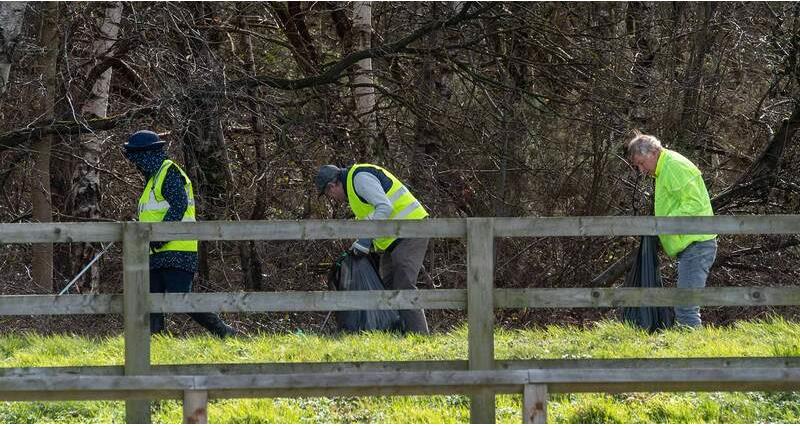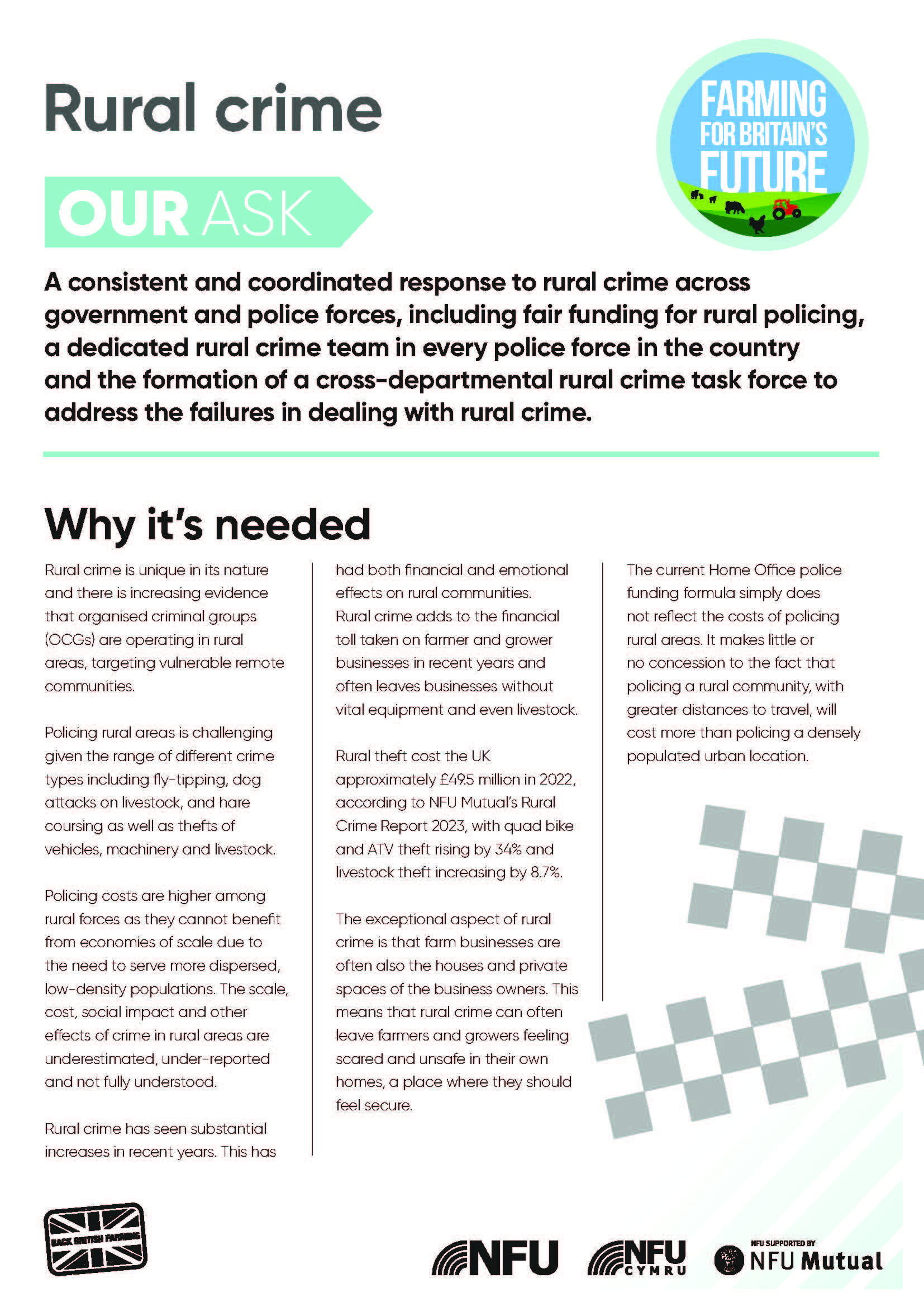The NFU is urging local authorities to use funds from fly-tipping fines to clean up private, as well as public land, following Defra’s announcement that it will ring-fence the money raised from fixed penalty notices.
First trailed in the Prime Minister’s Anti-Social Behaviour Plan, it is the government’s intention that fixed penalty notice receipts for fly-tipping and littering are reinvested locally in clean-up and enforcement.
The new rules came into force on 1 April, and follow a consultation last year which saw the NFU respond to government proposals, calling for the inclusion of enforcement functions on both private and public land, as well as greater consistency across how local authorities, the Environment Agency and the police engage with private land managers who are victims of fly-tipping.
Clean-ups on private and public land
NFU Vice President Rachel Hallos welcomed the announcement, adding that “for far too long, a lack of funding to combat this issue has allowed it to spiral out of control at the taxpayer’s expense”.
She said: “There were over one million incidents on public land alone last year. This excludes the incidents on privately managed land, and when farmers are victims of fly-tipping, it is their responsibility to clear and pay to have dumped waste removed from their land.
“With an estimated two-thirds of farmers affected by fly-tipping, the NFU believes it is an injustice that the sole responsibility is for the land managers to deal with this crime and we would urge local authorities to use the revenue from fixed penalty notices to assist with clear ups of waste dumped on both public and private farm land.”
“We would urge local authorities to use the revenue from fixed penalty notices to assist with clear ups of waste dumped on both public and private farm land.”
NFU Vice President Rachel Hallos
The NFU has welcomed recent government initiatives to help combat fly-tipping, including increasing the maximum penalty for fly-tipping from £400 to £1000 under the Antisocial Behaviour Plan and funding a new fly-tipping post within the National Rural Crime Unit.
Government plans to abolish the fees local authorities charge for disposing of DIY waste at HWRCs (household waste recycling centres) also came into force on 31 December 2023. Although some charges still apply and booking systems can mean lengthy waits.
Announcing the news, Recycling Minister Robbie Moore said these “inexcusable crimes spoil communities, create dangers for children and threaten wildlife”.
“We’ve already increased the maximum fines for these damaging crimes and now money raised from bringing them to justice will ensure more enforcement and help to clear up their sickening mess,” he said.
Danger to human health, wildlife and livestock
The NFU Vice President warned that not only is fly-tipping costly and time consuming to remove, but that it also poses dangers to human health, wildlife and livestock, and in some cases pollutes watercourses and contaminates land.
“This announcement confirms that the government is listening to our asks, and we hope that the revenue from fixed penalty notices will help prevent damage to the environment, farm businesses and the health of those that enjoy our countryside,” Rachel added.
If you know or suspect illegal waste activity is taking place, report it anonymously to Crimestoppers: Give information | Crimestoppers or call 0800 555 111. The 24-hour incident hotline is also available on 0800 80 70 60.
See our manifesto asks
Our manifesto
Our general election manifesto – Farming for Britain's Future – outlines our key asks of the next government to ensure farmers and growers can continue to deliver for the environment, economy and local communities while producing more of the great British food we all enjoy.

